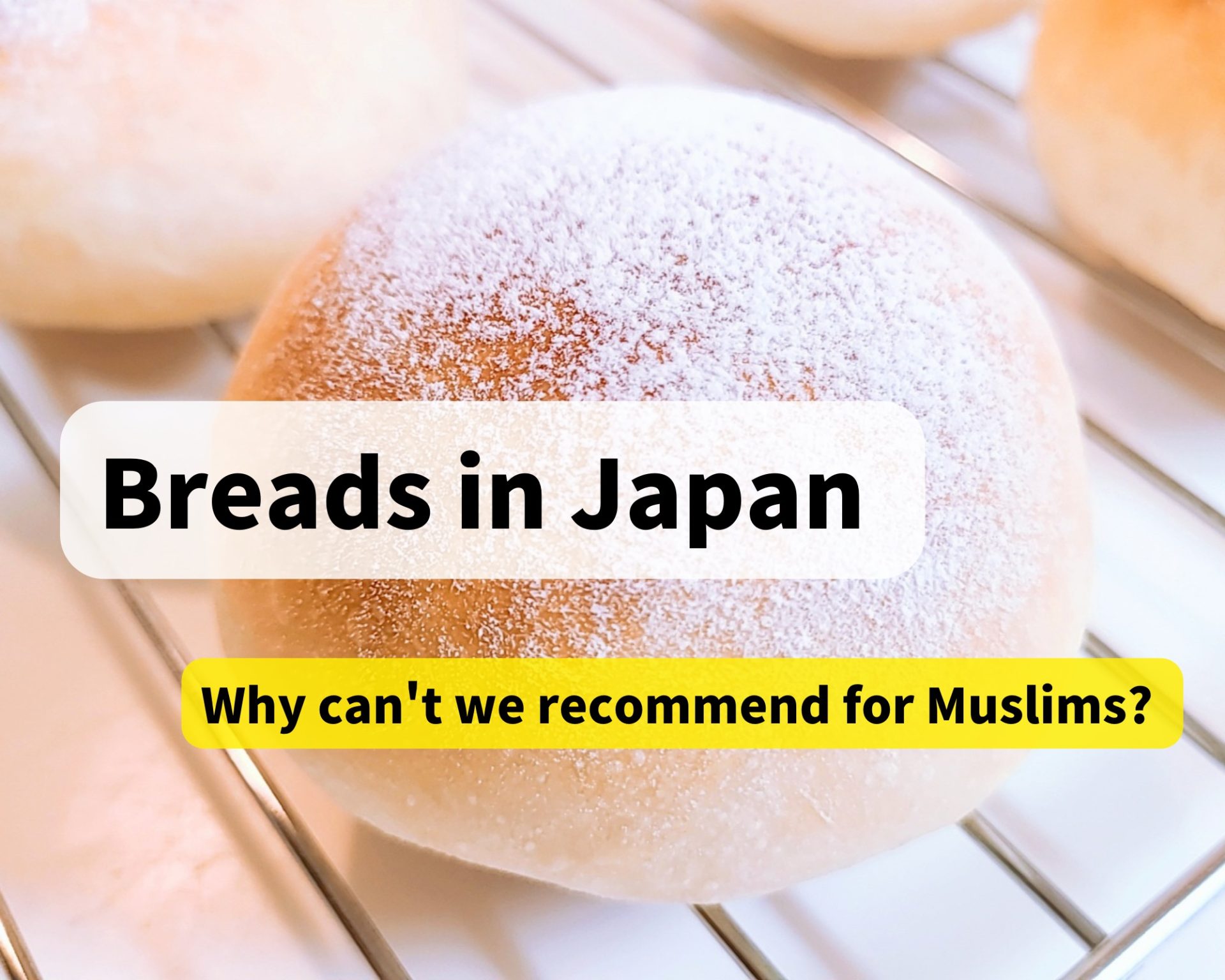Breads in Japan are very great, but…
Many people who are coming to Japan are thinking that Japan is a country of white rice, and main carbohydrate we eat is rice. Yes, this is true, but did you know that Japan also has great quality breads, too? People in Kyoto, the most traditional city, actually consume the largest amount of bread within Japan. From this fact, we can tell that the culture and tradition do not mean we always eat the most traditional grain.
As a Muslim tourist, you may wonder if you can have a Halal bread. There are wide variety of bread selections, and they are all so yummy. However, the truth is that they are not always free from animal or pork-derived ingredients. It is a food that Muslims should be very careful of, which we are going to talk in detail today.

Aren’t all breads safe to eat?
If you are from a country where majority of people live as Muslims, you may wonder why the bread can be haram. Bread is made from very simple ingredients, just flour, salt and oil, and it has no meat product because it is what accompanies the dish.
This does not apply to the Japanese breads. For us, rice is what accompanies the main dish, and bread is like a light snack. This is why there are so many breads that have meat like sausage, egg, or even some fried noodle or croquette.
It is not only limited to savory breads. There are so many sweet breads in Japan. They have cream, fruit flavored, custard or whatever the sweet stuff we can imagine.
As you can see, these breads are using not religiously processed meat, or it can contain some liquor.

Then, avoiding breads with fillings good enough?
The answer is no. There are more reasons why breads in Japan can not be Halal.
To have a rich flavor and crispy texture, breads in Japan usually contain margarine and shortening, which can be ingredients derived from pork and animals. We have many of those food additives that are made from plant, but we can never tell what each bakery shop is using until we ask them individually.
Another reason is that bakery shop uses brush made from animal hair. This utensil is used to put coating over the bread to make it have a nice color after baking. This is not a very comfortable fact for many Muslims, but Japanese people are not even aware of this fact. Unlike rice, there is more risk of contamination in the kitchen.

Then, where can we find a Halal bread in Japan?
As there are too many recipes and each individual shop is different, we strongly recommend you find a Halal bakery shop. This is because unlike other food items, it is extremely difficult to tell what is included in each bread or how the bread was made in the kitchen.
Although it is not a Japanese bakery experience, you can go to Halal Indian / Pakistani restaurant instead. They usually make breads in their kitchen, and they are using only very simple ingredients. In most of the cases, they will let you take them away with you. This is the safest way to eat bread in Japan.
Be careful with Japanese breads!
As we have told you, the environment how the breads are made in Japan is too complicated, and we can never guarantee it is safe for Muslims. We have so many nice breads in Japan, and we really want you to try the taste however, it is way too difficult to let you know which ones are safe.
Although there are not many bakery shops that have declared themselves as Halal or Muslim-friendly, it will be worth trying to find one in the city you are going to visit. We are sure you can enjoy the different and unique Japanese bread experience!
Japanese breads contain lots of meat and other ingredients, which is not always Halal.
It even includes margarine and/shortening, probably made from animals.
Kitchen utensils are made from animal hair, including pig, which make their product contaminated.
If you want to have a Halal bread in Japan, go to Indian / Pakistani restaurant or find Halal bakery shop.

